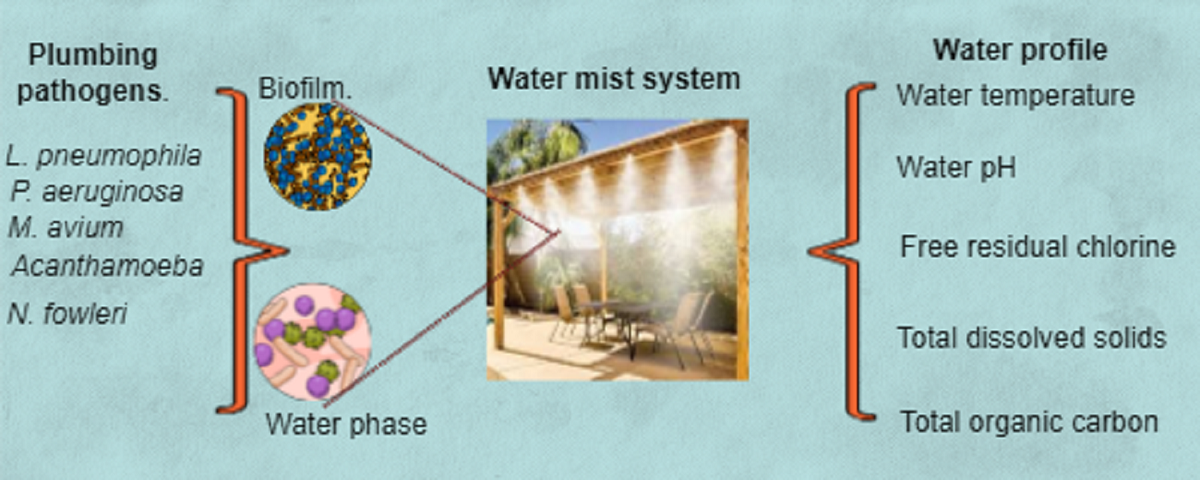Water mist systems (WMS) are used for evaporative cooling in public areas. The health risks associated with their colonization by opportunistic premise plumbing pathogens (OPPPs) is not well understood. To advance the understanding of the potential health risk of OPPPs in WMS, biofilm, water and bioaerosol samples (n = 90) from ten (10) WMS in Australia were collected and analyzed by culture and polymerase chain reaction (PCR) methods to detect the occurrence of 5 representative OPPPs: Legionella pneumophila, Pseudomonas aeruginosa, Mycobacterium avium, Naegleria fowleri and Acanthamoeba. P. aeruginosa (44%, n = 90) occurred more frequently in samples, followed by L. pneumophila serogroup (Sg) 2 - 14 (18%, n = 90) and L. pneumophila Sg 1 (6%, n = 90). A negative correlation between OPPP occurrence and residual free chlorine was observed except with Acanthamoeba ,rs (30) = 0.067, p > 0.05. . All detected OPPPs were positively correlated with water temperature. Biofilms contained higher concentrations of L. pneumophila Sg 2 - 14 (1000 – 3000 CFU/ml) in comparison to water samples (0-100CFU/ml). This study suggests that WMS can be colonized by OPPPs and are a potential health risk if OPPP contaminated aerosols get released into ambient atmospheres.

